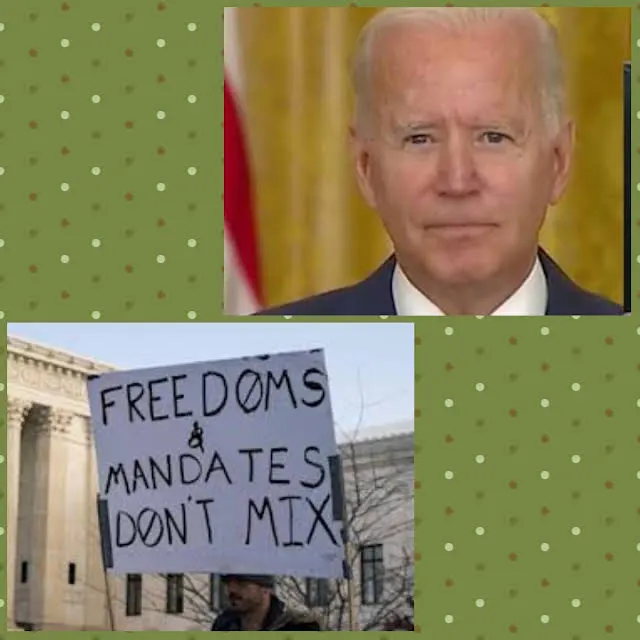
The U.S. government plays a critical role in the nation’s business ecosystem. While the government itself is not a “business” in the traditional sense, it wields significant influence over economic activity. Through regulation, taxation, subsidies, and direct ownership of certain enterprises, the government shapes the environment in which businesses operate. This system, often referred to as a “mixed economy,” blends elements of free-market capitalism with government intervention to promote fairness, stability, and public welfare.
This article explores how the U.S. government runs business, its role in key sectors, and its impact on private enterprises.
1. The Role of the U.S. Government in Business
Unlike fully socialist or communist systems where the government directly owns and operates most businesses, the U.S. economy is based on free-market principles. However, the government still maintains a significant role in ensuring fair competition, protecting consumers, and fostering a stable economic environment. The government’s influence can be divided into three primary areas:
a) Regulation and Oversight
The government establishes rules that businesses must follow. These regulations are intended to protect consumers, employees, and the environment. Regulatory agencies like the Securities and Exchange Commission (SEC), Environmental Protection Agency (EPA), and Occupational Safety and Health Administration (OSHA) oversee specific aspects of business operations.
Key Regulatory Activities Include:
- Consumer Protection: Ensuring product safety and truth in advertising.
- Labor Laws: Enforcing wage standards, working conditions, and anti-discrimination policies.
- Environmental Protection: Mandating pollution control and sustainability efforts.
- Financial Oversight: Monitoring the banking sector and stock markets to prevent fraud and financial crises.
By creating these regulatory frameworks, the government aims to balance the interests of businesses, workers, and the general public.
b) Taxation and Fiscal Policy
The government collects taxes from individuals and corporations to fund public services, infrastructure, and social programs. Corporate taxes impact business profitability, while tax incentives can influence business decisions. For example, the government may offer tax credits for renewable energy investments, encouraging companies to adopt sustainable practices.
Types of Taxes that Affect Businesses:
- Corporate Income Tax: Taxes on company profits.
- Payroll Taxes: Deductions for Social Security, Medicare, and unemployment benefits.
- Sales and Excise Taxes: Taxes on the sale of goods and services.
Tax policy can shape business behavior. For instance, if the government lowers corporate tax rates, businesses may have more cash to invest in expansion, research, and hiring. Conversely, higher taxes may reduce profits, leading to slower growth.
c) Direct Government Ownership and Public Enterprises
Although the U.S. economy is largely privatized, the government directly owns and operates certain enterprises. Unlike private businesses, these entities focus on public welfare rather than profit maximization.
Examples of Government-Owned Businesses:
- United States Postal Service (USPS): Handles mail delivery and courier services.
- Amtrak: Operates passenger rail service across the country.
- Tennessee Valley Authority (TVA): Provides electricity and economic development in certain regions.
These organizations operate under government oversight but often compete with private sector businesses. For example, USPS competes with FedEx and UPS in package delivery services.
2. Government as a Regulator of Business
One of the government’s primary roles is to regulate how businesses operate. While the aim is to create a fair and competitive marketplace, some businesses view regulations as restrictive or burdensome. The balance between necessary oversight and excessive red tape is a constant topic of debate.
a) Antitrust Laws
The U.S. government enforces antitrust laws to prevent monopolies and encourage competition. Without competition, companies could raise prices, reduce quality, or stifle innovation.
Key Antitrust Laws:
- Sherman Antitrust Act (1890): Prohibits monopolization and anti-competitive agreements.
- Clayton Antitrust Act (1914): Addresses mergers and acquisitions that may reduce market competition.
- Federal Trade Commission Act (1914): Created the Federal Trade Commission (FTC) to prevent deceptive business practices.
When large companies like Google, Amazon, or Meta face government scrutiny, it’s often related to these antitrust laws.
b) Environmental Regulations
Environmental protection is a major area where government regulation impacts businesses. The EPA sets and enforces standards related to pollution, waste management, and energy consumption. Companies that violate environmental laws face fines or legal action.
Key Examples of Environmental Regulations:
- Clean Air Act (1963): Regulates air pollutants.
- Clean Water Act (1972): Regulates discharges into U.S. waterways.
- Resource Conservation and Recovery Act (1976): Manages hazardous waste disposal.
Businesses in industries like manufacturing, energy production, and mining are most affected by environmental regulations.
3. Government as a Business Partner and Investor
In addition to regulation, the government also serves as a partner and investor in business ventures. This role is more supportive than restrictive, aimed at promoting economic growth and innovation.
a) Government Contracts and Procurement
The government purchases goods and services from private businesses through contracts. Companies that win government contracts benefit from steady revenue streams. These contracts cover areas like defense, construction, and technology.
Example:
- Defense Contracts: Companies like Boeing, Raytheon, and Lockheed Martin receive billions of dollars in contracts to supply the U.S. military with aircraft, weapons, and technology.
Small businesses can also benefit from Small Business Administration (SBA) contracts, which offer opportunities to sell goods and services to government agencies.
b) Government Subsidies and Grants
The government offers subsidies, loans, and grants to encourage growth in key sectors like clean energy, agriculture, and technology.
Examples of Subsidies:
- Renewable Energy Subsidies: Grants for wind, solar, and electric vehicle (EV) projects.
- Agricultural Subsidies: Payments to farmers to stabilize food prices and ensure a steady food supply.
- Research and Development (R&D) Grants: Government grants support tech startups and innovative research in fields like AI, biotechnology, and clean energy.
By offering financial support, the government encourages businesses to pursue socially beneficial projects.
4. Government’s Role in Economic Stability
The U.S. government plays an essential role in promoting economic stability. It responds to financial crises, recessions, and inflation using two key tools:
a) Monetary Policy (Controlled by the Federal Reserve)
The Federal Reserve controls interest rates, money supply, and credit availability. Lowering interest rates encourages borrowing and investment, while raising them curbs inflation.
Example:
During the 2008 financial crisis, the Federal Reserve lowered interest rates to near zero to stabilize the economy.
b) Fiscal Policy (Controlled by Congress and the President)
The government uses spending and taxation to manage economic activity. During recessions, it increases spending on infrastructure and social programs to stimulate demand.
Example:
During the COVID-19 pandemic, the U.S. government issued stimulus checks to households and loans to businesses, helping to sustain consumer spending.
5. Criticisms of Government Involvement in Business
While government intervention is necessary, critics argue that it can stifle innovation, increase business costs, and limit profitability. Key criticisms include:
- Over-Regulation: Excessive rules may slow down product development and increase compliance costs.
- Political Influence: Political agendas may lead to inconsistent policy changes that affect businesses.
- Favoritism: Large corporations often receive more government support than small businesses.
Despite these criticisms, most experts agree that a balance between government oversight and free-market competition is essential for a healthy economy.
Conclusion
The U.S. government plays a vital role in running and supporting business. While it does not operate businesses for profit, it regulates markets, invests in growth, stabilizes the economy, and promotes public welfare. By doing so, it shapes an environment where private enterprises can thrive.
Whether it’s through antitrust enforcement, environmental protection, tax incentives, or federal contracts, the government has a profound impact on business operations. Navigating these influences requires businesses to stay informed about regulations, government programs, and economic policies.
For entrepreneurs and business owners, understanding how the government interacts with business is crucial for compliance, growth, and strategic decision-making. The delicate balance between regulation and free-market activity defines the unique character of the U.S. economy.



